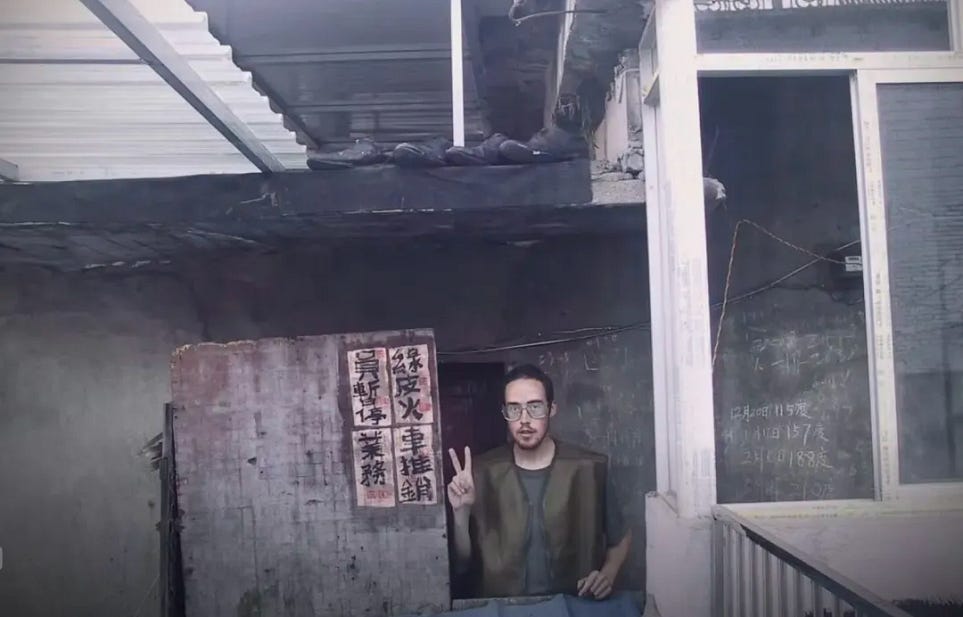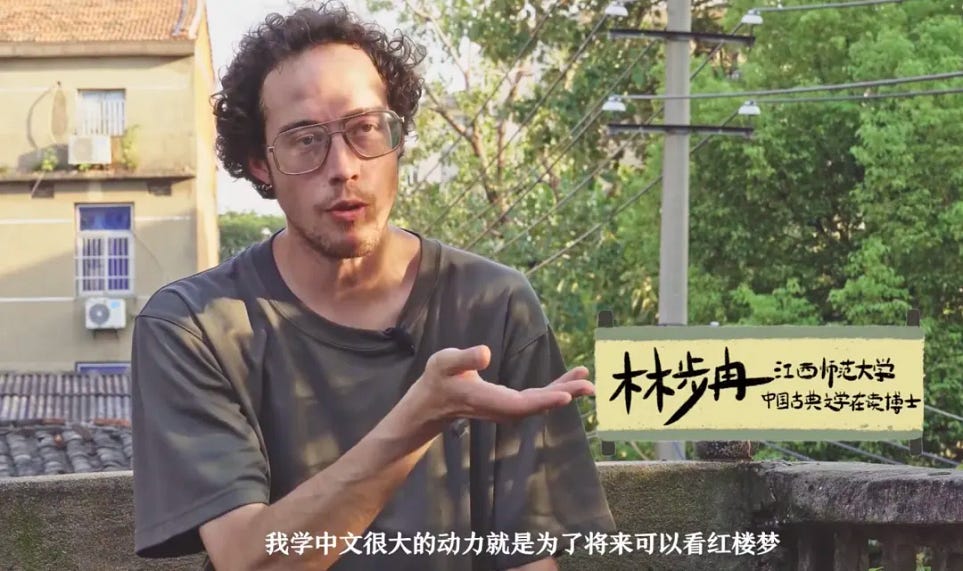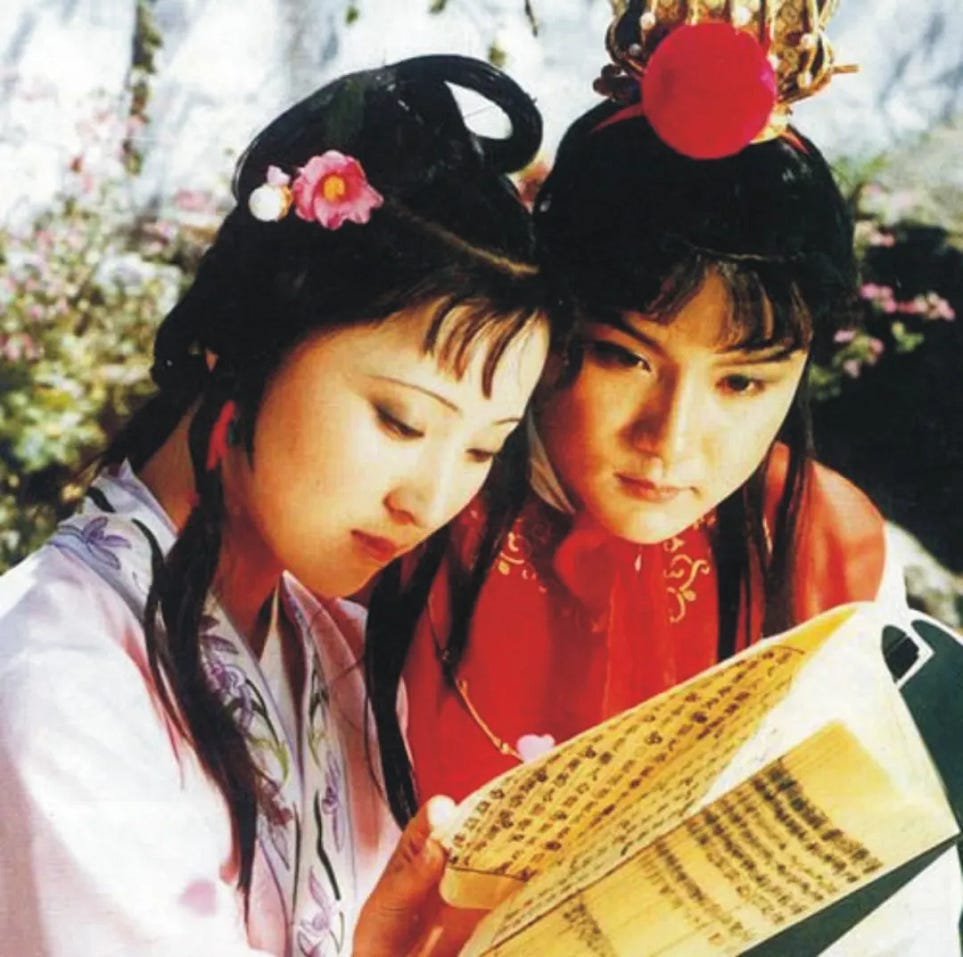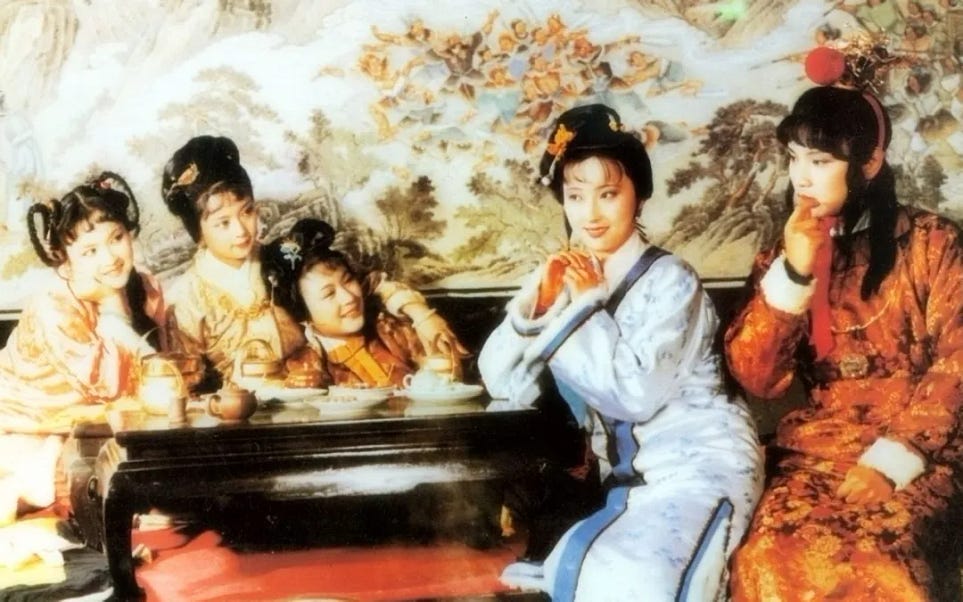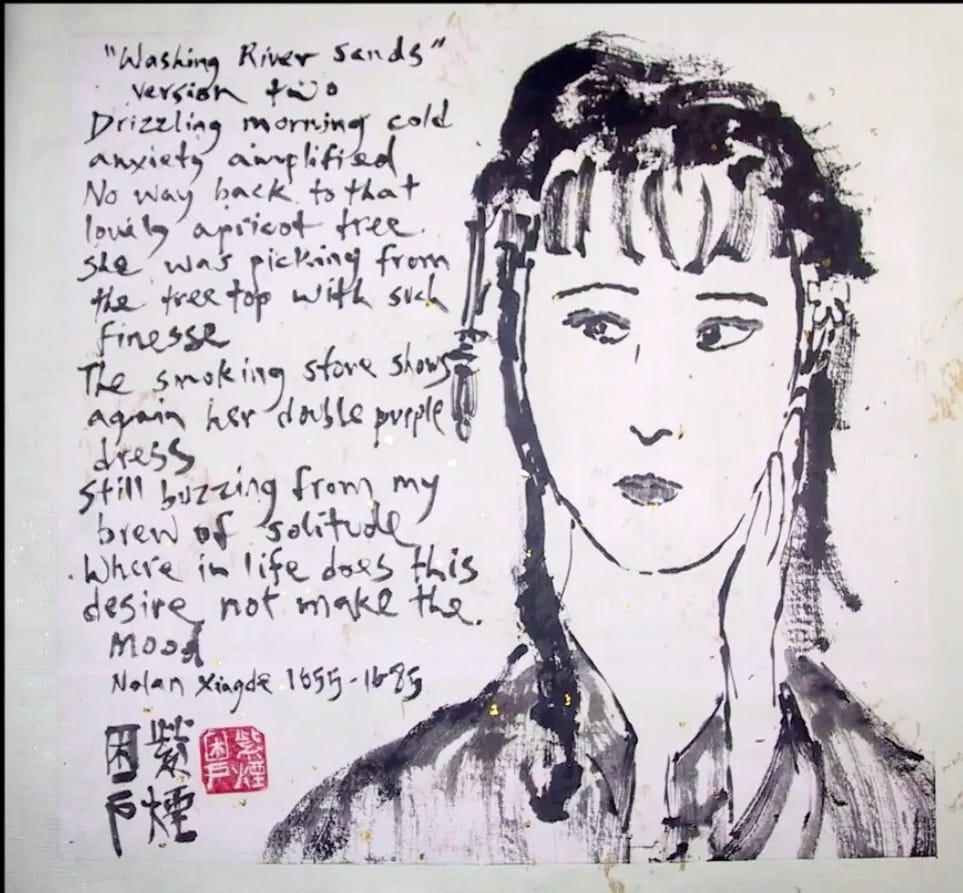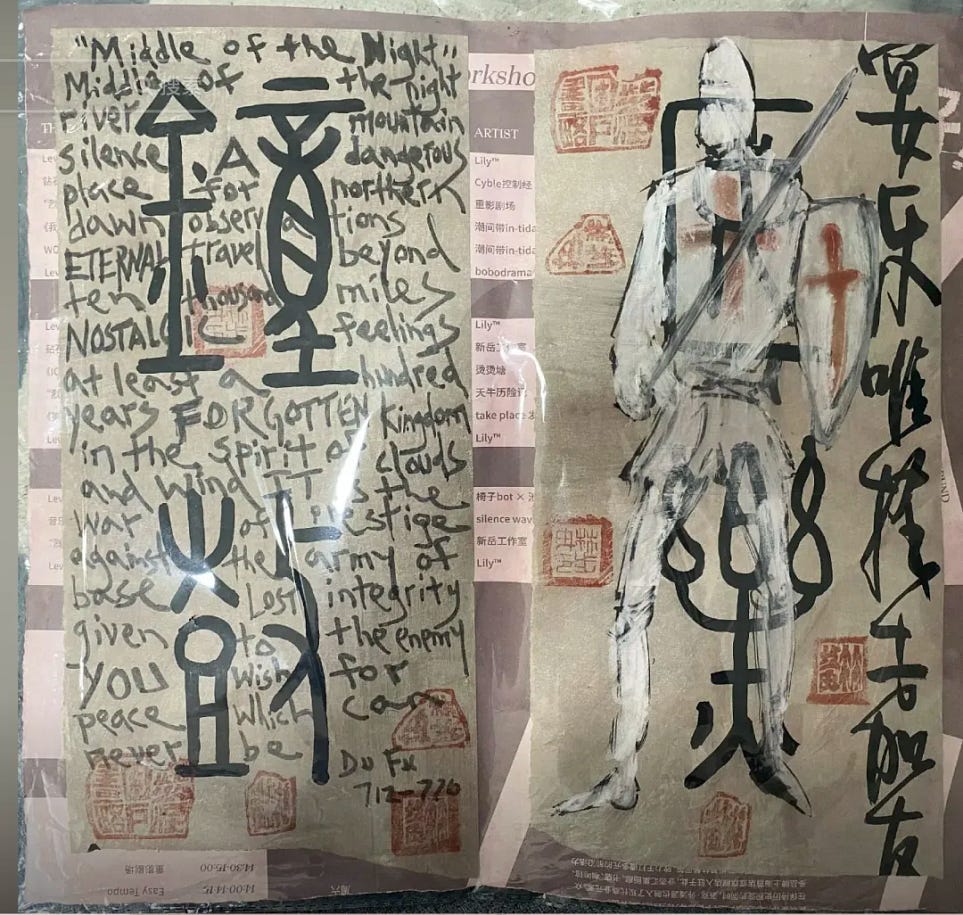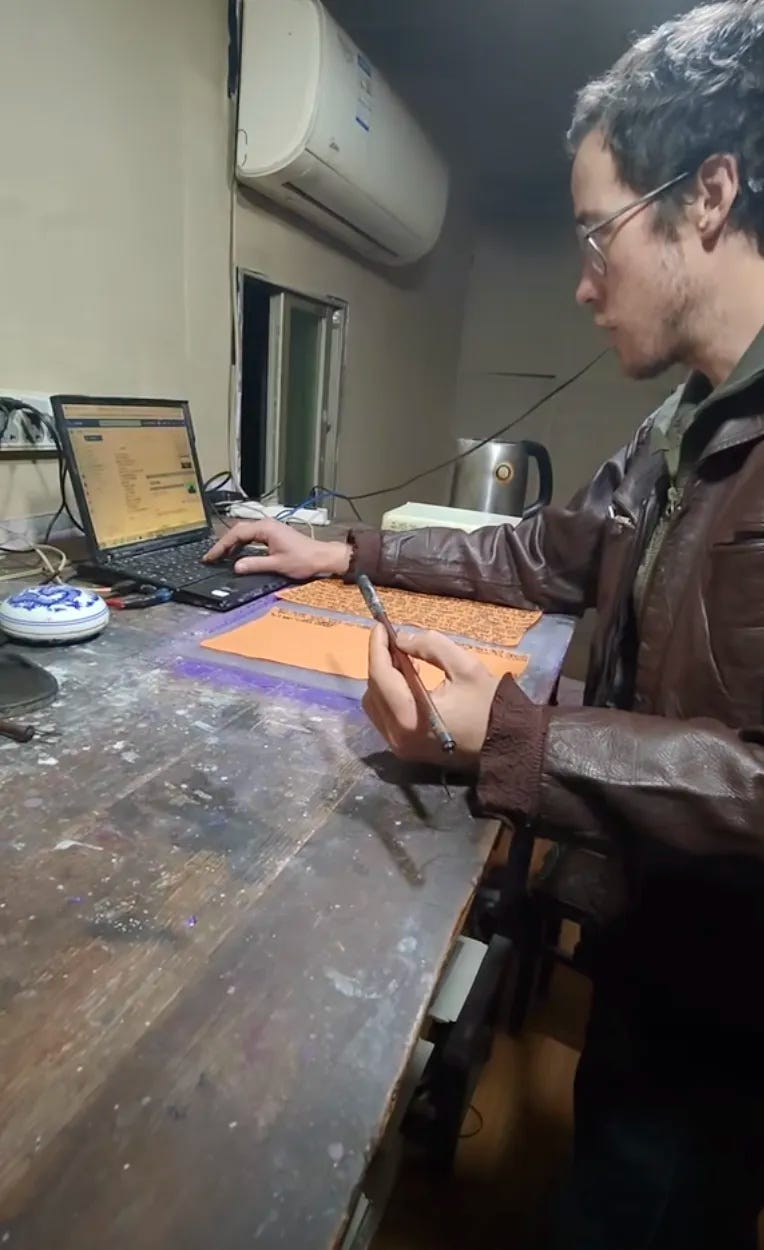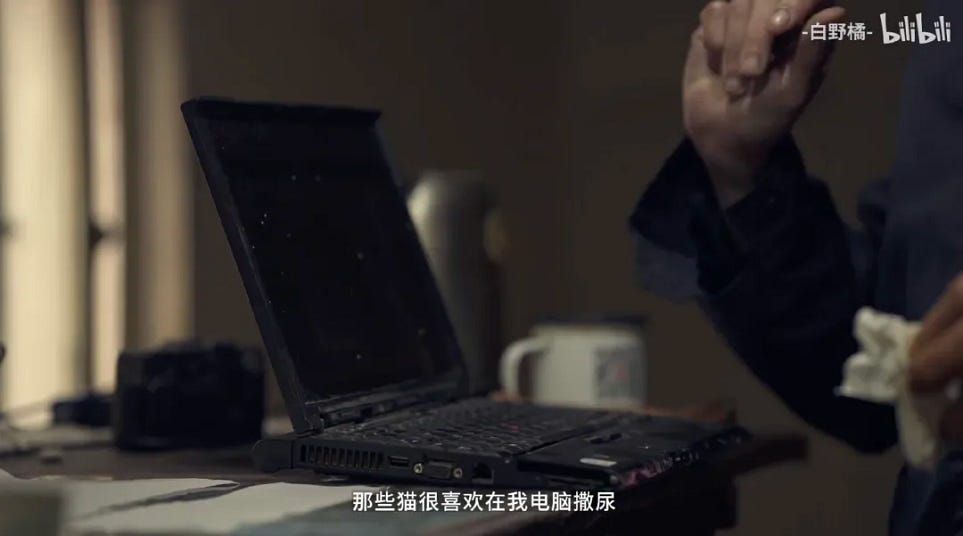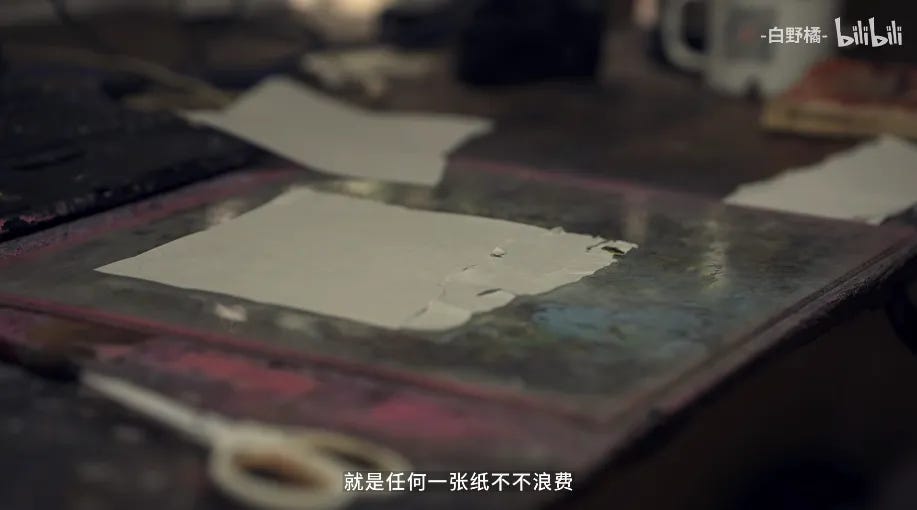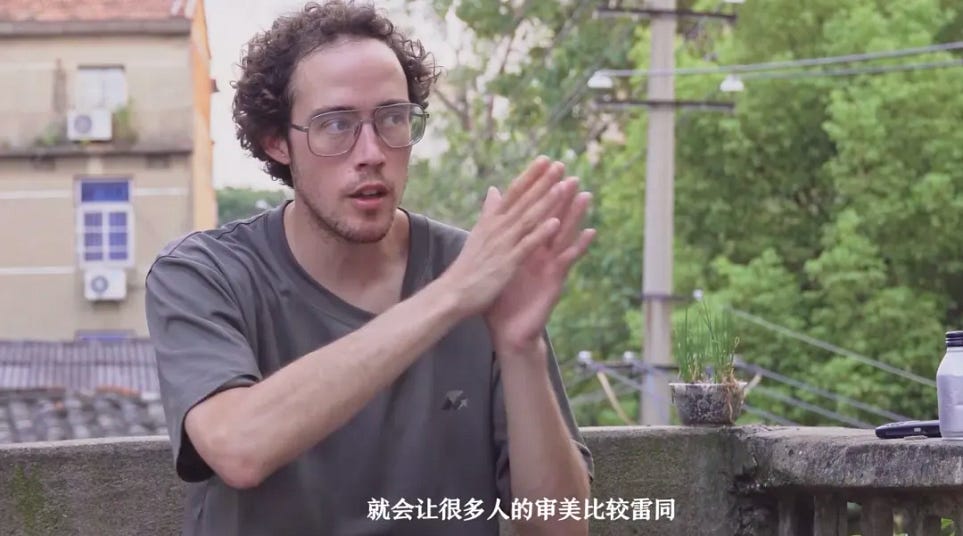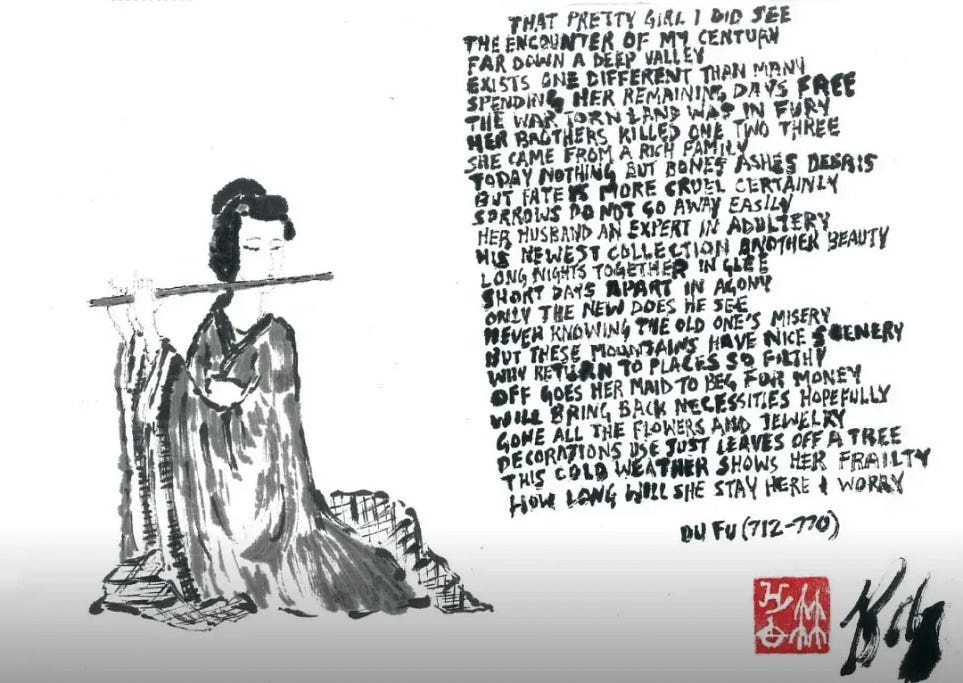A Canadian PhD fell in love with a Chinese goddess and lived in a 9-square-meter humble house in Nanchang
It is true that great people hide in the city.
In a residential building in the old city of Nanchang, a handsome foreigner lives a unique life.
His name is Lin Buran , a Canadian who was once a top student in the Department of Accounting at the University of Toronto.
Originally, he could have a decent job and live a life without worries about food and clothing, but he was willing to become an “ascetic monk” in Nanchang.
The house he rented was above a record store, only 9 square meters, costing 350 yuan a month. It was warm in the summer and cool in the winter, and the most high-end electrical appliance he had was a second-hand water heater that he had just bought.
There was not much furniture in the room, just a simple bed, a desk made of wooden boards, and the rest were bundles of rice paper.
This is his residence and studio.
Although it is shabby, he is content with it.
He gave himself the pen name “Purple Smoke, Poor Household”. “Purple Smoke” was taken from Li Bai’s “The sun shines on the incense burner and produces purple smoke”, and “Kunhu” literally means “poor household”.
But this is just his self-mockery.
In fact, he is a true “spiritual aristocrat “ .
He is obsessed with ancient Chinese literature and is fascinated by the writings of Nalan Xingde, Cao Xueqin, Li Shangyin, Li Qingzhao and others. He is also a die-hard fan of “Dream of the Red Chamber “ .
Even his Chinese surname is the same as his goddess Lin Daiyu.
In this room, he read, painted, translated… his inner world was extremely rich.
Some people say that he is the real-life protagonist of “The Moon and Sixpence”, and he himself does not deny it.
He said:“I am an absolute idealist.”
In his third year of undergraduate study, Lin Buran decided to drop out because he found that economics was a lie.
From then on, he began to travel around.
In 2006, he went to Singapore as an exchange student. By chance, he watched a play called “Dream of Red Mansions” hosted by Chinese students. From then on, the door to a new world was opened.
In order to understand “Dream of the Red Chamber”, he worked hard to learn Chinese and fought for the opportunity to study Chinese in Taipei, China.
With his halting Chinese proficiency, he read through this huge book word by word, and all the poems in it left him completely confused.
But he had a clear judgment in his mind — this was a comprehensive masterpiece that was worth spending several years studying.
In 2018, he came to Nanchang alone to pursue a master’s and doctoral degree in ancient Chinese literature at Jiangxi Normal University.
Here, he was exposed to the wider world of Chinese, and he dabbled in everything from the well-known Li Bai to the “unpopular poet” Han Shan.
He translated more than 300 poems of Hanshan, but due to too many admonitions from this great immortal, he gradually lost interest in him.
There are many brilliant stars in the field of classical Chinese literature, but the one that sticks with him throughout is “Dream of Red Mansions”.
In order to study the Dream of the Red Chamber, he listened to Jiang Xun’s detailed explanation of the Dream of the Red Chamber over and over again, and then went back to compare it with the original work and pondered it over and over again.
After years of reading, the thick book has completely fallen apart and can only be used after being hand-bound.
Even so, he still felt that every time he read “Dream of the Red Chamber”, he would make new discoveries, as if he would never be able to fully read it.
You may think that this is because foreigners have cultural differences with us, but in fact, Lin Buran’s research on the Dream of the Red Chamber is already very systematic and in-depth.
While studying for his doctorate, he translated most of the poems, songs, riddles and dialogues in the book into English, wrote essays of more than one million words, and even his doctoral thesis was about “Dream of the Red Chamber.”
His translation and annotation of “Hao Le Ge” is not a word-by-word comparison, but focuses on the overall meaning of the poem.
He even uses vaporwave, Buddhism, and Chairman Mao’s thoughts to interpret this work. He will use the plots and sentences in the book to describe the current situation, and he will also observe the world through the perspective of the characters in the book.
In a true sense, he brought Dream of the Red Chamber to life. Just as Japanese Zen Master Yamamoto Genjo said when he was giving a lecture at Longze Temple: “All sutras are just stepping stones.
They are meant to knock open the door and call out the person inside. That person is you.”
To a large extent, Lin Buran called out his deeper self through the classics.
“I used to be more optimistic and thought life would get better and better. Now I am a bit like Zhen Shiyin after his epiphany. I have become more disillusioned with the world and more negative.”
This pessimism is also a kind of foresight and clarity.
“Today is an era where Xiren is everywhere and Baochai is rampant.” It is impossible not to agree with Lin Buran’s words.
In Dream of the Red Chamber, his favorite was still Daiyu, who was tragic yet romantic, weak yet strong. Before she died, she burned all her poems. This was the last stubbornness of an idealist.
He and Daiyu are actually very similar.
When it was late at night and everyone was asleep, Lin Buran would often carry his paintings and go to the streets of the city to set up a stall to sell them.
Or pack a simple bag and take an overnight green train to another city to attend an art exhibition.
Compared with quiet and elegant art galleries, he prefers underground, noisy, wild and diverse markets, where he can create endless possibilities.
This temperament is very suitable for Lin Buran’s paintings.
When you first see his paintings, you will think that such a mix is a bit nonsensical.
The ferocious Chinese characters, English written with a brush, Daiyu with different expressions, and various indescribable images.
The mounting of the paintings is even more unique, with old certificates, cigarette boxes, flyers… there is always one that will open your eyes.
But if you appreciate it carefully, you will find that he has truly achieved the most valuable thing :
Self-expression.
In 2017, his Ukrainian classmates took him to the Bada Shanren Memorial Hall. He was touched when he saw Bada Shanren’s authentic works for the first time.
When he returned home that night, his painting soul suddenly awakened and he drew his first picture with a pen.
Since then, he has never stopped painting. So far, he has painted more than 4,200 paintings, more than 2,000 of which are related to “Dream of Red Mansions”.
Lin Buran had never studied art, nor had he practiced calligraphy. His painting materials were very simple: a bottle of black ink, a brush, and very ordinary yellow rice paper, that was all.
Free from the discipline of academic techniques and not restricted by market rules, he fully expresses himself through his paintings.
Some of those crooked words are his own poems, his own essays of insights, study notes, or Chinese poems translated into English. All elements that can inspire his inspiration can be turned into paintings.
Creation is joyful and even passionate, but also lonely and even crazy.
Half of the time, he thought what he made was very interesting, and the other half, he thought his paintings were all garbage.
So the walls of his “humble room” were sometimes covered with his masterpieces, and sometimes he would cover them all with rice paper, not wanting to even look at them.
This repetitive feeling of being twisted prompted him to walk into the crowd.
Whenever someone is curious about his paintings, he will excitedly share his ideas with them, and he will be full of motivation when he returns to create.
Sometimes, people would say to him bluntly, “Anyone can draw a picture like yours, but we don’t appreciate it.”
Although it’s a bit emo, Lin Buran is open about such comments. He is afraid that “things that most people think are good” will unknowingly affect his own aesthetic taste.
Whenever he goes out, Lin Buran never locks the door.
He said, “The only things in my house that are worth money are paintings.
Even if they are stolen, I will be very happy. It is a kind of appreciation.”
What he is looking for is not a buyer, but a confidant.
Even when money was tight, Lin Buran never worried about it.
At worst, when all my money is gone, I can go back to Canada and work with my father, an electrician, to recycle electrical wires.
When I have saved enough money, I can return to China and continue doing what I love.
Lin Buran has very low material desires. In the more than six years since he came to Nanchang, he has never worked outside and can maintain basic survival by relying on scholarships.
He uses a second-hand BlackBerry manufactured in 2005, which cost 80 yuan;
His clothing consisted of three pairs of leather shoes, three pairs of trousers, two pairs of shorts, three shirts, a coat and a liner, all of which were military-grade, cheap and durable;
His glasses frame belonged to a friend’s grandfather in Canada, who was a philosopher and died at the age of 95. Lin Buran regarded this frame as a treasure. After adding lenses to it, he has been using it ever since and has repaired it again and again.
He only eats one meal a day, usually wontons or buns from the snack bar downstairs, with Jiangxi chili sauce;
He buys things with cash, walks when he goes out, and takes the green train for long distances.
The only modern thing he has is a laptop.
The wild cats near his home always like to urinate on his keyboard. He has replaced the keyboard three times, but it is still very durable.
This explains why his paintings are always framed with some strange papers, because he is reluctant to waste any paper.
Even if the paper is jammed in the printer, he will flatten it and paste it together.
In the past, he basically gave his paintings away for free, but later he found that the other party might not like them and might even throw them away.
Now, he sells his works at the lowest price: 200 yuan for an original painting and 200 yuan for a photocopied album, and they are all bound by him.
From the perspective of profit, this pricing is not wise, because it is all time cost. What he considers is that people who really like his paintings can afford the price, but it is not too cheap to be thrown away at will.
It is not easy to buy Lin Buran’s paintings. He has no agent and does not use social media. The only way to buy his paintings is by sending emails, attending art exhibitions, or through introductions from friends.
This also resulted in his income being extremely unstable, and he had no income at all in the first three months of this year.
Lin Buran is now very famous. Many people go to art exhibitions just to buy his paintings. There are even scalpers who resell them at high prices. It can be said that it is difficult to get a painting.
Of course he knew that there were a lot of commercial hype that could make his paintings sell better, and even “getting rich overnight” was not a dream, but he didn’t want to do that.
He always kept a certain distance from modern society.
Indeed, technology has brought convenience to people’s lives, but in his opinion, any convenience will make you lose something else.
Smartphones have navigation functions, but they can also dull people’s sense of direction; the massive amount of information on the Internet can make you “knowledgeable”, but it can also deprive you of the ability to think deeply, making people increasingly superficial.
The worst thing is that it makes the global aesthetic become similar. Everyone uses similar mobile phones, follows the same trends, and everything is standardized.
But Lin Buran refused to be assimilated.
Walking out of his house is an open rooftop, which is why he chose to live here.
Looking around from the rooftop at night, on one side is the old city, which is pitch black, and on the other side are high-rise buildings, which are bright and prosperous.
Between the old and the new, the world is changing.
When he was in the right mood, he would project colorful lights onto the rooftop and do impromptu dance steps, enjoying solitude and revelry.
In this small corner of the world, he is like an ancient man living in modern society.
Search for Lin Buran on TikTok and you will find that there is indeed such a person.
The younger brother is in full charge of this account. In his eyes, he is the only one who is famous but still lives a more tiring and poorer life.
The family is worried about this and has no choice but to take the initiative to help.
Unexpectedly, my younger brother is also a very Buddhist person.
From the first update of his status in 2022 to the present, there are only 27 pieces of content, a few photos of his life and works, as simple as his residence.
No matter how much you ask in the comment section, you will never see any reply from him.
This is very Lin Buran, he has always been “allergic” to social media.
He is now 40 years old, but there is no trace of fatigue or exhaustion in his eyes.
He still paints until three or four in the morning when inspiration strikes, still lives a simple life, and still does not understand what anxiety is.
He still maintains a childlike enthusiasm for “Dream of the Red Chamber”.
Most of his current work revolves around translating “Dream of the Red Chamber” and Chinese classical poetry.
He hopes to use his own strength to promote Chinese culture to Canada and even further afield.
“I believe that research on Dream of the Red Chamber can change the world,” this is his belief, even though he knows that this is very Don Quixote.
In fact, in every era, there will be people like Lin Buran who are not trapped in time or space and always walk on their own track.
He lets us know that there is always another way of living in this world, and it is no worse than the universal values.
Ever since Lin Buran became popular, many people have said that they want to quit their jobs to pursue their dreams, but only a few can actually achieve their dreams.
Firstly, most people are trapped by worldly and material things.
Secondly, even if they have enough money and time, many people don’t know where they want to go, they just simply want to escape.
A mediocre life is like a wall that separates your ideals from the other side. You can continue to stay inside the wall or climb over it, it all depends on your choice.
But don’t forget one thing: we always understand spiritual nobility as “spiritual enjoyment”, but selectively ignore “spiritual labor”.
In fact, climbing the spiritual mountain is not easier than earning an extra two thousand yuan a month.
Therefore, spiritual aristocrats are ultimately a minority.
Where to go is the huge question hanging in the heart of every confused person.
And pursuit is the only answer.





